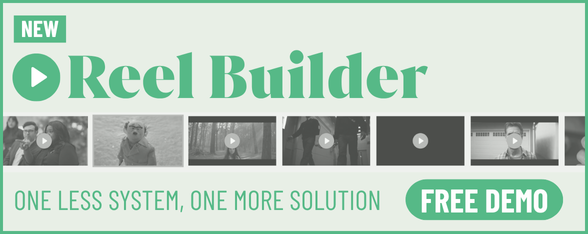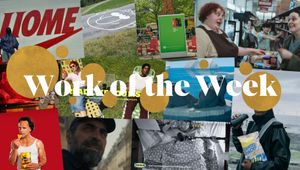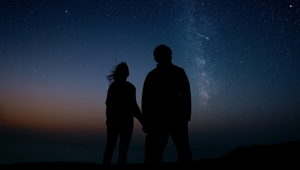
Connecting the Dots on Sustainability: Why We’re Approaching a Point of Maximum Possibility and Maximum Danger

In the history of social change movements, there's always been a point of "maximum danger": when a paradigm shift is about to happen and the pressure for change is so big, from multiple parts of society, and over a sustained period of time, that the threat to the establishment and the seat of power - those who benefit from the dominant worldviews, systems, culture and narrative - becomes very real.
Arguably, a paradigm shift is exactly what we are going through right now - this ‘major change in how people think and act which upends and replaces a prior paradigm’, following ‘an accumulation of anomalies or evidence that challenges the status quo’.
Iconic journalist and social-political activist Gloria Steinem, who has worked tirelessly towards equality and social justice over the last 6 decades, talks about a point of 'maximum danger' with an eloquent analogy from domestic violence - when a woman tries to leave the house is when she is at the highest risk of being harmed or killed. Connecting with the current societal shifts, she says "this is the point of maximum possibility [a safe and just society thriving on a healthy planet] and maximum danger at the same time, because we're on the verge of majority change - and so the old [extractive and exploitative] way of being is in for a backlash."
How do we know we're on the verge of a paradigm shift?
Some telltale signs:
- Those in power veer between denial, delaying or retropedalling on essential commitments (for example, the UK slowing down on Climate Action, EU nature/ecosystem restoration law under threat, and vulnerable communities worldwide still not allocated the funds they need to adapt to extreme climate impacts they’re least responsible for).
- Those lobbying and influencing the seat of power, typically who have accumulated wealth and profited from current systems, get more aggressive and pervasive in their tactics. This includes, for example, the infiltration by fossil fuel lobbyists of multiple organisations and climate groups in the US and of global Climate Change conferences (COPs) by overwhelming numbers, under the disguise of obscure environmental NGOs (BP chair, Bernard Looney, “attended the last COP as a delegate of Mauritania, a poor African country where the company has major investments”).
- In-fighting between movements or activist groups - and though we are all fighting the same fight, we witness this time and again in the business community or even within sustainability networks - bickering on the how and finger-pointing at imperfections.
- Mounting civil disobedience and unrest (recent examples include The Big One in spring and recent threats of ‘pitchforks and torches’ unless the ultra rich tackle inequality).
Everything, everywhere, all at once
In truth, we have lived through major crises throughout history - but these were usually one at a time, and usually with some respite in-between. Today however, several deep and intertwined crises are currently unfolding: our ‘poly-sustainability’ crisis of People, Nature and Climate, affecting the very foundations of society and with 17 major interconnected challenges for the world to solve within this decade (aka the UN Sustainable Development Goals).
At the best of times, pushing for any form of social or environmental justice requires sustained action and activism over a period of time, from multiple angles, at multiple levels. But in this context, pushing for change can be exhausting. So the need for collective action - and for changemakers to find our tribes and support circles - has never been more imperative.
As we seek to depart from a centuries-old patriarchal, exploitative and racist society (after an accumulation of anomalies and proof of failures in all our systems, from agriculture to fashion, energy, the judiciary, healthcare and education to name a few) and to move towards a Wellbeing Economy enabled by Purpose-Driven Organisations - we need to remember THIS is the time to keep binding together and pushing forth.
I am grateful for so many like-hearted folk around me who will not back down at the chance of calling BS out, keep focusing on the task at hand, keep telling the truth and keep pushing for the transformative change required.
And there will be resistance.
As Dr Wayne Visser, author or “Thriving” puts it, “while we see resistance from the vested interests - those that are stuck in the status quo - we also see the acceleration of the innovations that bring solutions to our social and environmental challenges. We should expect that there will be resistance to change. We should expect that there will be setbacks on the journey to transformation. And we should expect that change will happen nevertheless”.
I might add: we need to be prepared to grieve. Though the current story ending often looks like a dichotomy between ‘end of the world’ scenarios and ‘we will prevail!’, the reality most likely sits in an in-between space where we have to do everything in our power to effect the radical changes required, in time, towards a thriving world, all the while preparing for really hard times and to mourn the loss of a considerable amount of things we have taken for granted - from food security, fresh water and weather patterns, to all the ecosystem services our economy depends on, to homes, energy supplies and entire countries (Cannes Titanium winner Tuvalu).
Sleeves rolled up, hearts open
I recently had one such moment which I shared with my [tutors and assessors] peers in the ongoing Sustainable Marketing, Media and Creative (CISL) course, following the outpouring of heartfelt feedback we have been receiving from students. Many come in with assumptions on what sustainable marketing/creative means - and can be in for a shock when they realise the magnitude of the crises we are in but more particularly the prominent role our industry, and marketing in general, have in all of it. And so many come away empowered and inspired, because they know the full truth and have allowed themselves - thanks to a very supportive, empathetic process - to really connect with issues at an emotional level and then - the beauty! - to reclaim and hone the power they have in effecting change.
This process or ‘safe space’ also allowed me to recognise I’d been experiencing grief myself, during a recent long walk in nature with my partner, away from kids, people and distractions. It’s not pleasant and it’s unsettling for a while, but then it is cathartic and I believe also the root to healing and moving forward with increased clarity and compassion.
Indeed it can be uncomfortable to feel and share this, but as we go through transformative times - rethinking, dismantling and designing systems and cultures that are fit for purpose (aka long term wellbeing for all) - we ought to be prepared to be very uncomfortable for quite some time.
So what if the key to unlocking true joy and resilience in all this work is the recognition of what it is we need to say goodbye to - and then to let ourselves experience that grief fully?..
As the Lancet brilliantly concluded back in 2020, “This is a crucial decade for the world. [...] Recognising that emotions are often what leads people to act, it is possible that feelings of ecological anxiety and grief, although uncomfortable, are in fact the crucible through which humanity must pass to harness the energy and conviction that are needed for the lifesaving changes now required”.
Gratitude
I find so much inspiration in the youth activists today, who are leading the charge and understand transformative change requires connecting at a deep emotional level; and in those enlightened minds who work tirelessly to shift the narrative, unearth the truth, point towards a bright future and how we get there - and finding joy along the way! Your voices are so needed and certainly heard.
And I’d like to praise the invaluable leadership we see in our industry - including but not limited to Harriet and Jake at CAN, Futerra’s Solitaire and Lucy, Duncan at Clean Creatives, and the wonderful humans behind Purpose Disruptors. These all have in common authentic leadership, the courage of integrity - and realistic optimists with bold ambitions yet feet on the ground.
As we approach the tipping point of maximum danger, we must keep the focus, keep pushing and binding together, to collectively imagine and design the future we all long for.
Amelie is a freelance communications and sustainability consultant and an assessor on the new/groundbreaking CISL Sustainable Marketing, media and creative course.
Having spent most of her career in Advertising from press to production, film curation and events, Amelie operates at the intersection of creativity and sustainability, and collaborates with fellow advertising, media, creative and tech change-makers to help accelerate the transition to conscious marketing.]
Image by Corey Young on Unsplash















